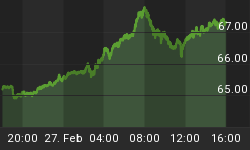The Russian government is reportedly considering seizing and nationalizing the assets of foreign companies exiting Russia due to the invasion of Ukraine.
Seen as retaliation for Western sanctions and the exodus of hundreds of international businesses, the move is more egotistical than pragmatic as it would have little economic impact at this point.
In a meeting with government officials, Russian President Vladimir Putin said the Kremlin could find legally viable ways to seize international firms, according to The Moscow Times.
The government would push to “introduce external management and then transfer these enterprises to those who actually want to work. There are enough legal and market instruments for this”, Putin was quoted as saying.
The Russian Ministry of Economy said it could take temporary control of such businesses where foreign ownership exceeds 25%.
In a statement, Russia’s ruling party, United Russia, said the first step towards this has already been taken with the approval of such measures by the government’s commission that assesses the laws to be proposed to the Russian parliament.
According to the proposed bill, the “external management” of the international companies in question would initially last for three months. After that, the government would put the businesses up for auction.
However, according to the party’s statement, companies from “unfriendly nations” would be able to prevent the nationalization process if they chose to relaunch operations in Russia.
On top of formal sanctions imposed by the U.S. and the European Union, major Western businesses and brands have taken steps to suspend, or have already suspended operations in Russia, with Coca-Cola, McDonalds and Pepsi shutting down operations earlier this week.
Other companies like Apple, H&M, IKEA, Ford and many others either paused sales, imposed restrictions or closed stores in Russia last month.
According to the latest data compiled by the Yale School of Management, more than 340 companies have left Russia or cut operations. Due to mounting pressure and criticism at home, even those companies that are still operating in Russia might be forced to follow suit as this conflict has now become a matter of ESG (environmental, social and good governance) investing.
However, none of the Western businesses that left the country, or are planning to, produce goods there, and the supply chains of products to Russia have already been interrupted, though some assets that will be left behind have value.
The retaliation will go further than this, too.
According to a Guardian report, the Russian government is reportedly planning to seize $10 billion in planes leased by foreign companies to Russian state-owned airline Aeroflot.
In another retaliatory move, the Kremlin said yesterday it would ban the export of over 200 products, including electronic goods and telecoms equipment, which follows a decree issued earlier this week that would allow Russian entities to steal Western patents.
The Kremlin also has a ban on wheat and agricultural products to the Eurasian Economic Union, Forbes reports.
Russia’s retaliation and the escalation of its attack on Ukraine were met with further sanctions from the Biden administration on Friday, which banned imports of Russian alcohol and seafood, which will have a huge impact on the country’s vodka and caviar sales.
Ukraine itself has also passed a law allowing it to seize property owned by the Russian government or its citizens without any compensation.
















